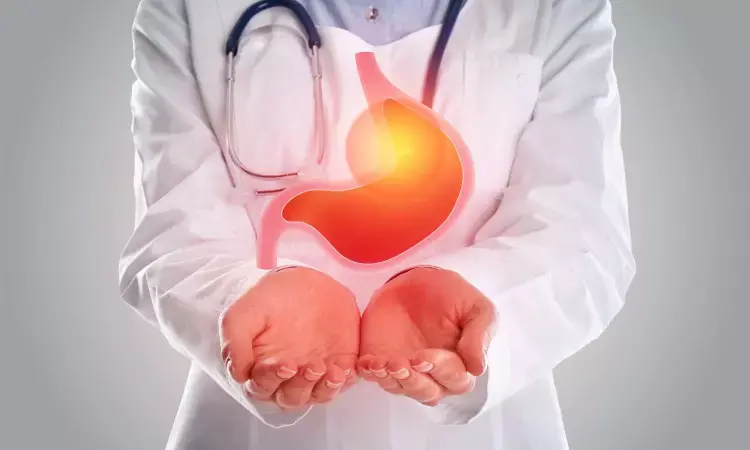- Home
- Medical news & Guidelines
- Anesthesiology
- Cardiology and CTVS
- Critical Care
- Dentistry
- Dermatology
- Diabetes and Endocrinology
- ENT
- Gastroenterology
- Medicine
- Nephrology
- Neurology
- Obstretics-Gynaecology
- Oncology
- Ophthalmology
- Orthopaedics
- Pediatrics-Neonatology
- Psychiatry
- Pulmonology
- Radiology
- Surgery
- Urology
- Laboratory Medicine
- Diet
- Nursing
- Paramedical
- Physiotherapy
- Health news
- Fact Check
- Bone Health Fact Check
- Brain Health Fact Check
- Cancer Related Fact Check
- Child Care Fact Check
- Dental and oral health fact check
- Diabetes and metabolic health fact check
- Diet and Nutrition Fact Check
- Eye and ENT Care Fact Check
- Fitness fact check
- Gut health fact check
- Heart health fact check
- Kidney health fact check
- Medical education fact check
- Men's health fact check
- Respiratory fact check
- Skin and hair care fact check
- Vaccine and Immunization fact check
- Women's health fact check
- AYUSH
- State News
- Andaman and Nicobar Islands
- Andhra Pradesh
- Arunachal Pradesh
- Assam
- Bihar
- Chandigarh
- Chattisgarh
- Dadra and Nagar Haveli
- Daman and Diu
- Delhi
- Goa
- Gujarat
- Haryana
- Himachal Pradesh
- Jammu & Kashmir
- Jharkhand
- Karnataka
- Kerala
- Ladakh
- Lakshadweep
- Madhya Pradesh
- Maharashtra
- Manipur
- Meghalaya
- Mizoram
- Nagaland
- Odisha
- Puducherry
- Punjab
- Rajasthan
- Sikkim
- Tamil Nadu
- Telangana
- Tripura
- Uttar Pradesh
- Uttrakhand
- West Bengal
- Medical Education
- Industry
Patients undergoing bariatric surgery for GERD may very often require revision surgery

Gastroesophageal reflux disease (GERD) is a recognized possible outcome of bariatric surgery and may necessitate revisional surgery.
In a recent study published in Surgical Endoscopy, researchers said GERD is the second most common reason for revisional surgery after bariatric surgery, primarily affecting sleeve gastrectomy (SG) patients who mainly underwent Roux-en-Y gastric bypass (RYGB) revision. They mentioned further investigation is needed to optimize these patients' pre-operative approaches and surgical strategies.
Our understanding of the population needing revision needs to be improved. This study aims to characterize GERD patients requiring revisional surgery, understand their perioperative risks, and identify strategies for improved outcomes.
In 2020, a retrospective cohort of GERD patients needing revisional surgery was identified using the MBSAQIP registry. Multivariable logistic regression was used to examine correlations between baseline characteristics and morbidity.
Key findings from this study are:
· 4412 patients required revisional surgery for GERD, encompassing 24% of all conversion procedures.
· Most patients underwent SG as their original surgery, constituting 80.1%.
· The revisional surgery for most patients was RYGB, constituting 84.4%.
· 527 patients experienced major complications.
· Ten patients died within 30 days of revisional surgery.
· Major complications included anastomotic leak (0.70%) and gastrointestinal bleeding (0.86%).
· Operative length, pre-operative antacid use, and RYGB were predictors of major complications.
This study is the largest to date on patients undergoing revisional surgery for GERD. The pathophysiology of GERD in bariatric surgery patients is still debated, but a better understanding could reduce the need for revisional procedures. They said that novel endoscopic techniques raise new questions as potential alternatives for primary and revisional bariatric procedures.
Reference:
MacVicar, S., Mocanu, V., Jogiat, U. et al. Revisional bariatric surgery for gastroesophageal reflux disease: characterizing patient and procedural factors and 30-day outcomes for a retrospective cohort of 4412 patients. Surg Endosc (2023). https://doi.org/10.1007/s00464-023-10500-4
BDS, MDS in Periodontics and Implantology
Dr. Aditi Yadav is a BDS, MDS in Periodontics and Implantology. She has a clinical experience of 5 years as a laser dental surgeon. She also has a Diploma in clinical research and pharmacovigilance and is a Certified data scientist. She is currently working as a content developer in e-health services. Dr. Yadav has a keen interest in Medical Journalism and is actively involved in Medical Research writing.
Dr Kamal Kant Kohli-MBBS, DTCD- a chest specialist with more than 30 years of practice and a flair for writing clinical articles, Dr Kamal Kant Kohli joined Medical Dialogues as a Chief Editor of Medical News. Besides writing articles, as an editor, he proofreads and verifies all the medical content published on Medical Dialogues including those coming from journals, studies,medical conferences,guidelines etc. Email: drkohli@medicaldialogues.in. Contact no. 011-43720751


